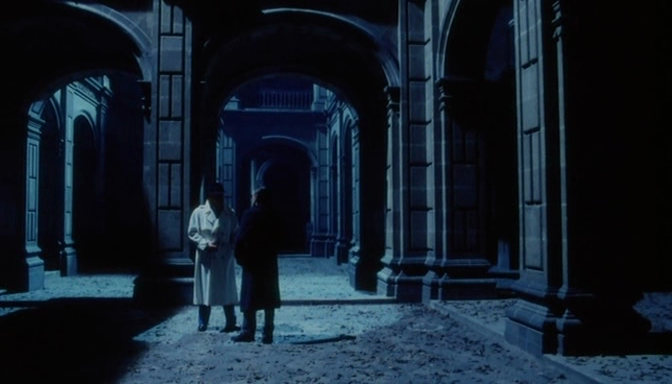
Tuesday
Last week I cited a passage from Jorge Luis Borges’s “Death and the Compass” when pondering whether we are overanalyzing Donald Trump. I turn to the same story today to address whether the Democrats are overcomplicating their response to the president’s behavior. While many commentators believe launching an impeachment inquiry is a no-brainer given Trump’s cover-ups and other infractions, Speaker Nancy Pelosi and others are gaming out the politics.
On the one hand, figures like Rep. Rashida Tlaib (D-Mich) are saying, “This is not about 2020 election. It’s about doing what’s right now for our country. This is going to be a precedent that we set when we don’t hold this president accountable.” On the other, some Democrats worry that an impeachment inquiry will energize Donald Trump’s base, focus the president’s energies, and detract from legislative priorities, such as healthcare, infrastructure, and climate change.
I’m generally suspicious of people that believe the way forward is simple—often they are just pleading for their own preferred course of action—but in this case the president’s behavior is so egregious and the Constitution so clear that there should be no debate. In addition to the behavior outlined in the Mueller Report, Trump has misused emergency degrees, the presidential pardon power, and the Department of Justice, using the latter to go after political enemies, whom he accuses of treason. Borges’s short story provides an analogy for the Democrats’ internal debate.
To repeat the plot, someone has stabbed to death a rabbi poring over ancient texts. Detective Treviranus, who resembles the bumbling Scotland Yard inspectors in Sherlock Holmes stories, thinks the murderer blundered into the wrong hotel room since there were jewels to be stolen in the adjoining room. The Sherlock-like Lonnrot, however, prefers a more complicated explanation and plunges into an elaborate analysis of the Torah.
It so happens that Treviranus is right: the murderer did blunder into the wrong room. The criminal mastermind who ordered the theft (Scharlach) figures out what Lonnrot is up to and starts seeding false cues to lead him further astray. In this way he’s less like Trump, who reacts rather than plans, and more like Edgar Allan Poe’s Dupin, who in “The Purloined Letter” is always one step ahead of his opponent.
The labyrinth into which Scharlach leads Lonnrot sounds very much like the tangle in which the Democratic leadership currently finds itself. The large house to which Scharlach lures the detective symbolically captures the debates:
Lonnrot explored the house. He traveled through antechambers and galleries to emerge upon duplicate patios; several times he emerged upon the same patio. He ascended dust-covered stairways and came out into circular antechambers; he was infinitely reflected in opposing mirrors; he grew weary of opening or half-opening windows which revealed the same desolate garden outside, from various heights and various angles; inside, the furniture was wrapped in yellow covers and the chandeliers bound up with cretonne. A bedroom detained him; in the bedroom, a single rose in a porcelain vase – at the first touch the ancient petals fell apart. On the second floor, on the top story, the house seemed to be infinite and growing. The house is not this large, he thought. It is only made larger by the penumbra, the symmetry, the mirrors, the years, my ignorance, the solitude.
At the story’s end, Scharlach reveals his complicated plot to entrap the detective. He vowed revenge after Lonnrot foiled his brother in a bank robbery in which he himself was shot:
At night, my delirium nurtured itself on this metaphor: I sensed that the world was a labyrinth, from which it was impossible to flee, for all paths, whether they seemed to lead north or south, actually led to Rome, which was also the quadrilateral jail where my brother was dying and the villa of Triste-le-Roy. During those nights I swore by the god who sees from two faces, and by all the gods of fever and of mirrors, to weave a labyrinth around the man who had imprisoned my brother.
In his final words, Lonnrot mentions how even a straight line can function as a labyrinth. He is referring to Zeno’s paradox, which argues that an arrow shot from a bow can never reach its target because, before it reaches the tree, it must travel half way there and, before that, half way again, and so on ad infinitum. Another version of the paradox is that speedy Achilles can never overtake a tortoise. In other words, philosophers, poets, and overly cerebral detectives can turn even the most straightforward of paths into a tangle:
“In your labyrinth there are three lines too many,” [Lonnrot] said at last. “I know of a Greek labyrinth which is a single straight line. Along this line so many philosophers have lost themselves that a mere detective might well do so too. Scharlach, when, in some other incarnation you hunt me, feign to commit (or do commit) a crime at A, then a second crime at B, eight kilometers from A, then a third crime at C, four kilometers from A and B, halfway en route between the two. Wait for me later at D, two kilometers from A and C, halfway, once again, between both. Kill me at D, as you are now going to kill me at Triste-le-Roy.”
“The next time I kill you,” said Scharlach, “I promise you the labyrinth made of the single straight line which is invisible and everlasting.”
He stepped back a few paces. Then, very carefully, he fired.
Have Democrats gotten lost in what should be a straight line? Trump will not hesitate to fire.